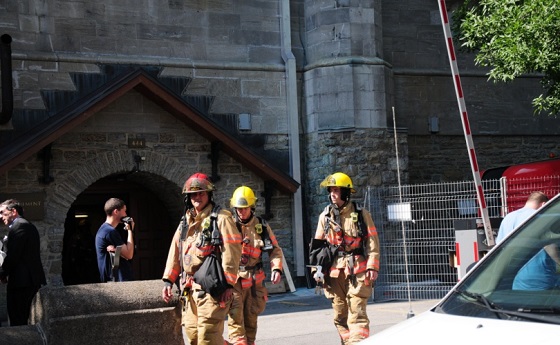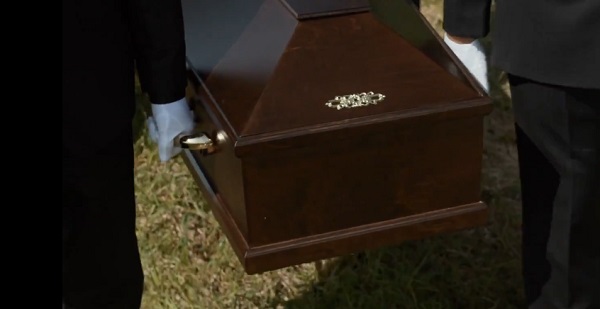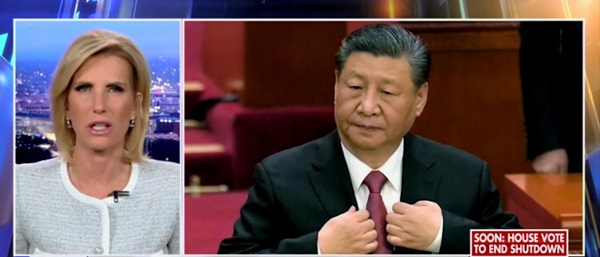Uncategorized
‘It looked like Armageddon:’ Deadly gas blasts destroy homes

LAWRENCE, Mass. — A series of gas explosions an official described as “Armageddon” killed a teenager, injured at least 10 other people and ignited fires in at least 39 homes in three communities north of Boston, forcing entire
Authorities said Leonel Rondon, 18, of Lawrence, died Thursday after a chimney toppled by an exploding house crashed into his car. He was rushed to a Boston hospital but pronounced dead there in the evening.
Massachusetts State Police urged all residents with homes serviced by Columbia Gas in Lawrence, Andover and North Andover to evacuate, snarling traffic and causing widespread confusion as residents and local officials struggled to understand what was happening.
“It looked like Armageddon, it really did,” Andover Fire Chief Michael Mansfield told reporters. “There were billows of smoke coming from Lawrence behind me. I could see pillars of smoke in front of me from the town of Andover.”
Gov. Charlie Baker said state and local authorities are investigating but that it could take days or weeks before they turn up answers.
“This is still very much an active scene,” he said. “There will be plenty of time later tonight, tomorrow morning and into the next day to do some of the work around determining exactly what happened and why.”
Early Friday, the utility issued a statement saying its crews need to visit each of the 8,600 affected customers to shut off each gas meter and conduct a safety inspection.
“Additional support is being provided by crews from several affiliated Columbia Gas companies and other utilities,” the statement said. “We expect this will be an extended restoration effort, and we will work tirelessly to restore service to the affected customers.”
Baker previously said authorities hadn’t heard directly from Columbia Gas, but later called the company’s response “adequate.”
By late Thursday, all of the fires had been doused but many areas remained silent and dark after residents fled and after power companies cut electricity to prevent further fires. Schools in all three communities were
Lawrence resident Bruce Razin was among the evacuees standing outside the Colonial Heights
Officials had cut power in the area and the streets were pitch black, save for emergency vehicle lights. Razin said he arrived just as residents were being evacuated, and immediately saw the house two doors down was
“I couldn’t imagine if that was my house,” said Razin, who purchased his home nearly two years ago. “It’s total destruction. I’d be completely devastated.”
With a backpack filled with personal items he had hastily grabbed, he said he’d head to his mother’s home a few towns over for the night.
In Lawrence, a man whose
When he ran downstairs and saw the boiler on fire, he quickly grabbed a fire extinguisher and put it out. Minutes later, Nam said he heard a loud boom from his
Lawrence General Hospital said it was treating 10 victims, including at least one in critical condition.
The Massachusetts Emergency Management Agency blamed the fires on gas lines that had become over-pressurized but said investigators were still examining what happened.
Columbia had announced earlier Thursday that it would be upgrading gas lines in
Reached by phone, some local officials described scenes of panic as residents rushed to evacuate, many wondering if their homes would be next to erupt in flames. In North Andover, town selectman Phil Decologero said his entire
“It’s definitely a scary situation at the moment,” he said. “It’s pretty severe.”
Aerial footage of the area showed some homes that appeared to be torn apart by blasts. At one, the upper portion of a brick chimney crushed an SUV parked in the driveway.
Soon after the first fires, Lawrence City Councilor Marc Laplante was warning residents in the Colonial Heights
“People need to get out of this area safely,” he said at the time. “It’s really difficult because the traffic right now is horrendous.”
Joseph Solomon, the police chief in nearby Methuen, said 20 to 25 homes were on fire in Lawrence when he responded to help. He said there are so many fires “you can’t even see the sky.”
The three communities house more than 146,000 residents about 26 miles (40
“Lawrence is a very resilient community. We’re going to get through this together,” Mayor Dan Rivera told reporters as emergency lights illuminated smoke in the night sky nearby.
Gas explosions have claimed lives and destroyed property around the U.S. in recent years:
— A buildup of natural gas triggered an explosion and fire that killed seven people in apartments in Silver Spring, Maryland, in 2016.
— In 2014, a gas explosion in New York City’s East Harlem
— A 2011 natural gas explosion killed five people in Allentown, Pennsylvania, and that state’s largest gas utility was fined by regulators who called the company’s safety record “downright alarming.”
— In September 2010, a Pacific Gas and Electric gas pipeline exploded in San Bruno, California, killing eight people and destroying 38 homes.
___
Associated Press writers Alanna Durkin Richer and Collin Binkley contributed from Boston.
Philip Marcelo, The Associated Press
Uncategorized
Trump Admin Establishing Council To Make Buildings Beautiful Again


From the Daily Caller News Foundation
By Jason Hopkins
The Trump administration is creating a first-of-its-kind task force aimed at ushering in a new “Golden Age” of beautiful infrastructure across the U.S.
The Department of Transportation (DOT) will announce the establishment of the Beautifying Transportation Infrastructure Council (BTIC) on Thursday, the Daily Caller News Foundation exclusively learned. The BTIC seeks to advise Transportation Secretary Sean Duffy on design and policy ideas for key infrastructure projects, including highways, bridges and transit hubs.
“What happened to our country’s proud tradition of building great, big, beautiful things?” Duffy said in a statement shared with the DCNF. “It’s time the design for America’s latest infrastructure projects reflects our nation’s strength, pride, and promise.”
“We’re engaging the best and brightest minds in architectural design and engineering to make beautiful structures that move you and bring about a new Golden Age of Transportation,” Duffy continued.
Mini scoop – here is the DOT’s rollout of its Beautifying Transportation Infrastructure Council, which will be tasked with making our buildings beautiful again. pic.twitter.com/
9iV2xSxdJM — Jason Hopkins (@jasonhopkinsdc) October 23, 2025
The DOT is encouraging nominations of the country’s best architects, urban planners, artists and others to serve on the council, according to the department. While ensuring that efficiency and safety remain a top priority, the BTIC will provide guidance on projects that “enhance” public areas and develop aesthetic performance metrics.
The new council aligns with an executive order signed by President Donald Trump in August 2025 regarding infrastructure. The “Making Federal Architecture Beautiful Again” order calls for federal public buildings in the country to “respect regional architectural heritage” and aims to prevent federal construction projects from using modernist and brutalist architecture styles, instead returning to a classical style.
“The Founders, in line with great societies before them, attached great importance to Federal civic architecture,” Trump’s order stated. “They wanted America’s public buildings to inspire the American people and encourage civic virtue.”
“President George Washington and Secretary of State Thomas Jefferson consciously modeled the most important buildings in Washington, D.C., on the classical architecture of ancient Athens and Rome,” the order continued. “Because of their proven ability to meet these requirements, classical and traditional architecture are preferred modes of architectural design.”
The DOT invested millions in major infrastructure projects since Trump’s return to the White House. Duffy announced in August a $43 million transformation initiative of the New York Penn Station in New York City and in September unveiledmajor progress in the rehabilitation and modernization of Washington Union Station in Washington, D.C.
The BTIC will comprise up to 11 members who will serve two-year terms, with the chance to be reappointed, according to the DOT. The task force will meet biannually. The deadline for nominations will end Nov. 21.
Uncategorized
New report warns WHO health rules erode Canada’s democracy and Charter rights

The Justice Centre for Constitutional Freedoms has released a new report titled Canada’s Surrender of Sovereignty: New WHO health regulations undermine Canadian democracy and Charter freedoms. Authored by Nigel Hannaford, a veteran journalist and researcher, the report warns that Canada’s acceptance of the World Health Organization’s (WHO) revised International Health Regulations (IHR) represents a serious erosion of national independence and democratic accountability.
The IHR amendments, which took effect on September 19, 2025, authorize the WHO Director-General to declare global “health emergencies” that could require Canada to follow directives from bureaucrats in Geneva, bypassing the House of Commons and the will of Canadian voters.
The WHO regards these regulations as “binding,” despite having no ability or legal authority to impose such regulations. Even so, Canada is opting to accept the regulations as binding.
By accepting the WHO’s revised IHR, the report explains, Canada has relinquished its own control over future health crises and instead has agreed to let the WHO determine when a “pandemic emergency” exists and what Canada must do to respond to it, after which Canada must report back to the WHO.
In fact, under these International Health Regulations, the WHO could demand countries like Canada impose stringent freedom-violating health policies, such as lockdowns, vaccine mandates, or travel restrictions without debate, evidence review, or public accountability, the report explains.
Once the WHO declares a “Pandemic Emergency,” member states are obligated to implement such emergency measures “without delay” for a minimum of three months.
Importantly, following these WHO directives would undermine government accountability as politicians may hide behind international “commitments” to justify their actions as “simply following international rules,” the report warns.
Canada should instead withdraw from the revised IHR, following the example of countries like Germany, Austria, Italy, Czech Republic, and the United States. The report recommends continued international cooperation without surrendering control over domestic health policies.
Constitutional lawyer Allison Pejovic said, “[b]y treating WHO edicts as binding, the federal government has effectively placed Canadian sovereignty on loan to an unelected international body.”
“Such directives, if enforced, would likely violate Canadians’ Charter rights and freedoms,” she added.
Mr. Hannaford agreed, saying, “Canada’s health policies must be made in Canada. No free and democratic nation should outsource its emergency powers to unelected bureaucrats in Geneva.”
The Justice Centre urges Canadians to contact their Members of Parliament and demand they support withdrawing from the revised IHR to restore Canadian sovereignty and reject blind compliance with WHO directives.
-

 Frontier Centre for Public Policy1 day ago
Frontier Centre for Public Policy1 day agoRichmond Mayor Warns Property Owners That The Cowichan Case Puts Their Titles At Risk
-

 National2 days ago
National2 days agoConservative bill would increase penalties for attacks on places of worship in Canada
-

 armed forces2 days ago
armed forces2 days agoCanadian veteran says she knows at least 20 service members who were offered euthanasia
-

 Daily Caller2 days ago
Daily Caller2 days agoLaura Ingraham’s Viral Clash With Trump Prompts Her To Tell Real Reasons China Sends Students To US
-

 Alberta2 days ago
Alberta2 days agoHow economic corridors could shape a stronger Canadian future
-

 Business2 days ago
Business2 days agoSluggish homebuilding will have far-reaching effects on Canada’s economy
-

 Business1 day ago
Business1 day agoMark Carney Seeks to Replace Fiscal Watchdog with Loyal Lapdog
-

 Censorship Industrial Complex21 hours ago
Censorship Industrial Complex21 hours agoEU’s “Democracy Shield” Centralizes Control Over Online Speech









